As the World Health Organisation confirmed finally that we’re in the midst of a pandemic, we asked three Australians on the frontline of the virus to share their concerns, anonymously. This is what they told us.
For up to date public health advice, please visit The Department Of Health.
“You’d never forgive yourself if you didn’t report it”
A Virgin flight attendant
“There is a sense of fear. I’ve been washing my hands a lot, using hand sanitiser after I touch passengers’ boarding cards, and before [food] service, and the crew are constantly in the bathrooms wiping down surfaces. Extra personal protection equipment – sanitiser, face masks, gloves, biohazard bags to deal with vomiting incidents – has been loaded on to the aircraft.
The crew are being very cautious – letting me know whenever there’s a guest coughing a lot. They feel they have a responsibility. You’d never forgive yourself if you didn’t report something. We recently had a vomiting episode with two young girls coming back from Mexico. In my opinion it was only ever going to be food poisoning but it’s not a great time to be vomiting on a plane.
We have a checklist of symptoms to run through with them, and if it was serious the crew would put on personal protection equipment and then we would isolate the passengers. We have a 24-hour, 365-day-a-week facility we can call at a hospital in Arizona. So, if I was concerned, I’d go to the cockpit and call from the satellite phone.
Passenger numbers are down, and [Virgin] has asked crew to consider taking leave without pay. I’m worried – it’s not a very secure industry to be in at the moment. People are really afraid to travel. They’ve had to cut back on a lot of routes, and I felt really sad going through LAX recently. It was like a ghost town just seeing these fleets just parked.”
“If the worst-case scenario plays out it will change healthcare in Australia”
A Melbourne hospital doctor
The situation is changing on a daily basis, and as a result my attitude has also been changing day by day. Right now, we’re at a point where everyone [at my hospital] is planning to be inundated. We’ve been getting old [resuscitation] machines out, trying to get them going again.
I’m a very cautious individual, so when we first saw some of the data coming through, I rang my wife and said, ‘Everyone’s going to start panic buying. Don’t do that. Don’t go crazy. But perhaps just go to the supermarket and stock up on a few things.” I also said that we may as well go and get some protective masks and I told her which ones (P295) but at that point in Melbourne all the Bunnings had already sold out.
I always plan for the worst
Do the masks work? Theoretically. But you have to wear them properly and put them on properly. I remember back around the time of SARS, we were given half an hour’s training on how to get in and out of the [hospital] rooms without contaminating ourselves, and, literally, even after that training, 50 per cent of the time, doctors were still contaminating themselves.
The main idea right now is to reduce the spread.
If the worst-case scenario were to play out, then it will change the way we experience healthcare in Australia – the hospital system will be overrun. There are only so many ICU beds.
But it’s the job of healthcare managers and hospitals to plan for the worst-case scenarios and there are a lot of strategies being considered. For example, cancelling all elective surgery or, in certain places, having age limits on ICU admission. I think it’s unlikely we’ll see a hard and fast [age] cut-off. It’s more likely going to be triage by an experienced doctor. You know, ‘This [older] patient has multiple co-morbidities and is extremely unlikely to survive, so this is the one who doesn’t come in where the patent who is 40 and otherwise healthy does.’
The reality is that if Corona Virus hits the hospitals then there’s a good chance that I’ll get it. Our duty of care is that we will keep working and looking after sick people. This is definitely a once in-a-lifetime event.
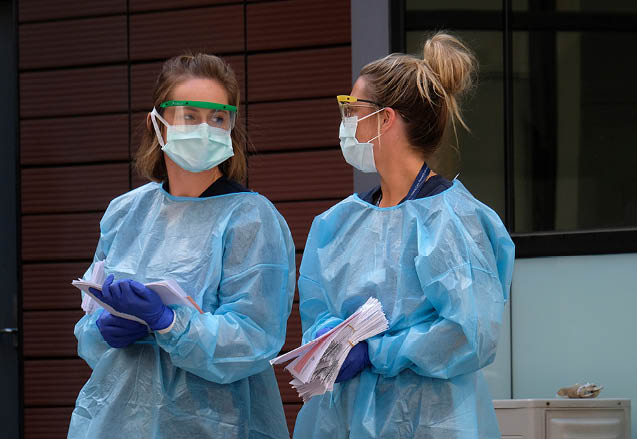
“I don’t have sick pay as a casual”
Melbourne hospitality worker
In October 2018, I broke my arm playing basketball, which meant I couldn’t work for four weeks. At the time, I was employed as a chef earning $26.93 an hour, which is what I’m on now, and my company tried to find me other duties that I could fulfil with a broken hand, but they were limited and paid less than my usual role.
I applied for Sickness Allowance from Centrelink and my experience with them is what makes me so worried about coronavirus now. It took four months for any payment to come through, despite hours of calls and applications, and tears on the phone as I tried to work it all out.
For me, it was a real wake-up call: you think you can talk to your workplace or use Centrelink when issues arise, all these pathways for help that seem reasonable and fair, but they just disappear when you need them.
I was lucky in that I had a safety net – a supportive partner and parents I could borrow money from. But if you’re an immigrant, or you don’t get along with your parents, or you’re single, and you’re on a casual contract like mine, things could get difficult.
No one on a casual contract at my work gets sick pay. The ACTU is demanding the government provide two weeks’ sick pay for all workers to cover the fact that casualised workers won’t be able to look after themselves. I think it would reduce the number of people going to work while they’re sick. I missed a shift last week because I felt unwell and wanted to see if I improved after a good sleep. Once I did, I felt relatively safe to do a shift but I wasn’t 100 per cent by any stretch. Let’s say I didn’t have my savings from wage theft, though? I definitely would go to work.
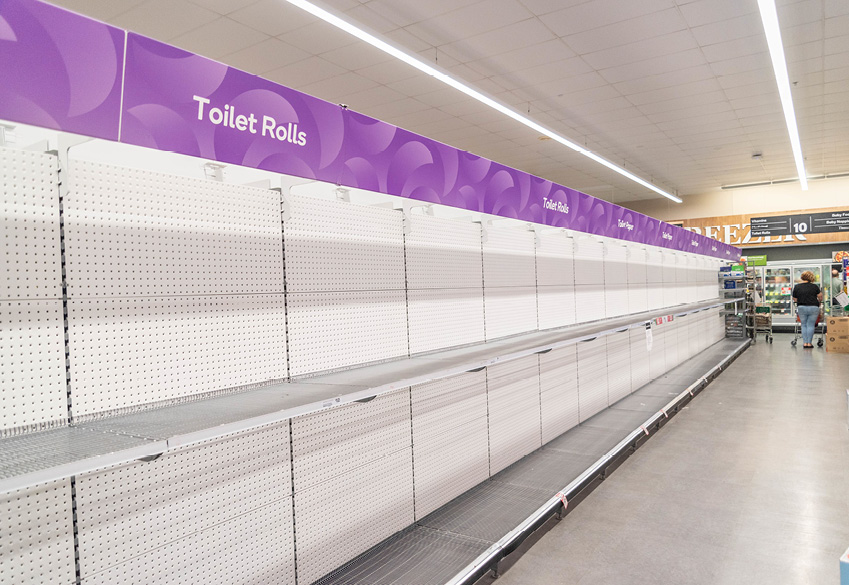
“Sending your kids to school with a cold could put my daughter in hospital”
A mother whose 10-year-old daughter has Cystic Fibrosis
My daughter takes lots of different medications – probably over 20 tablets every day – and we do physiotherapy every morning before school and every night before bed to help open up her lungs. Her life expectancy is 37.
Cystic fibrosis primarily affects the lungs and digestive system. Basically [people with CF] can’t clear their lungs out properly. So, we are always straight on to any coughs and colds. If she develops a wet cough, we treat it with antibiotics right away. Flu and other respiratory illnesses can [more easily] develop into pneumonia, which is life-threatening.
Basically, where the rest of us might take some Panadol if we have a cold, she would need to go on antibiotics straightaway.
Where the rest of us might take some Panadol if we have a cold, she would need to go on antibiotics straightaway
We’ve always carried hand sanitiser. We’ve always been conscious of basic hand hygiene. So, it’s interesting to see a lot of healthy people freak out, when this is our everyday life.
CF varies so much. I have friends – other mums – whose kids are in hospital every three months for weeks at a time because of ongoing lung infections. So, we’re quite lucky as my daughter is quite healthy.
But I wish people understood that there are other people out there that are more affected by these things and to be considerate of others. That when you send your kids to school, sick, it might seem like ‘just a little cold’ to you – but it’s something that could cause our children to end up in hospital.
There are people hoarding hand sanitiser and it just seems so silly because there are people who really need it. A lot of people with CF are finding it hard right now because CF affects the bowels and they often spend a lot of time on the toilet – so they need toilet paper.
Things like that make me concerned that people aren’t considering others. We need to look after each other right now.




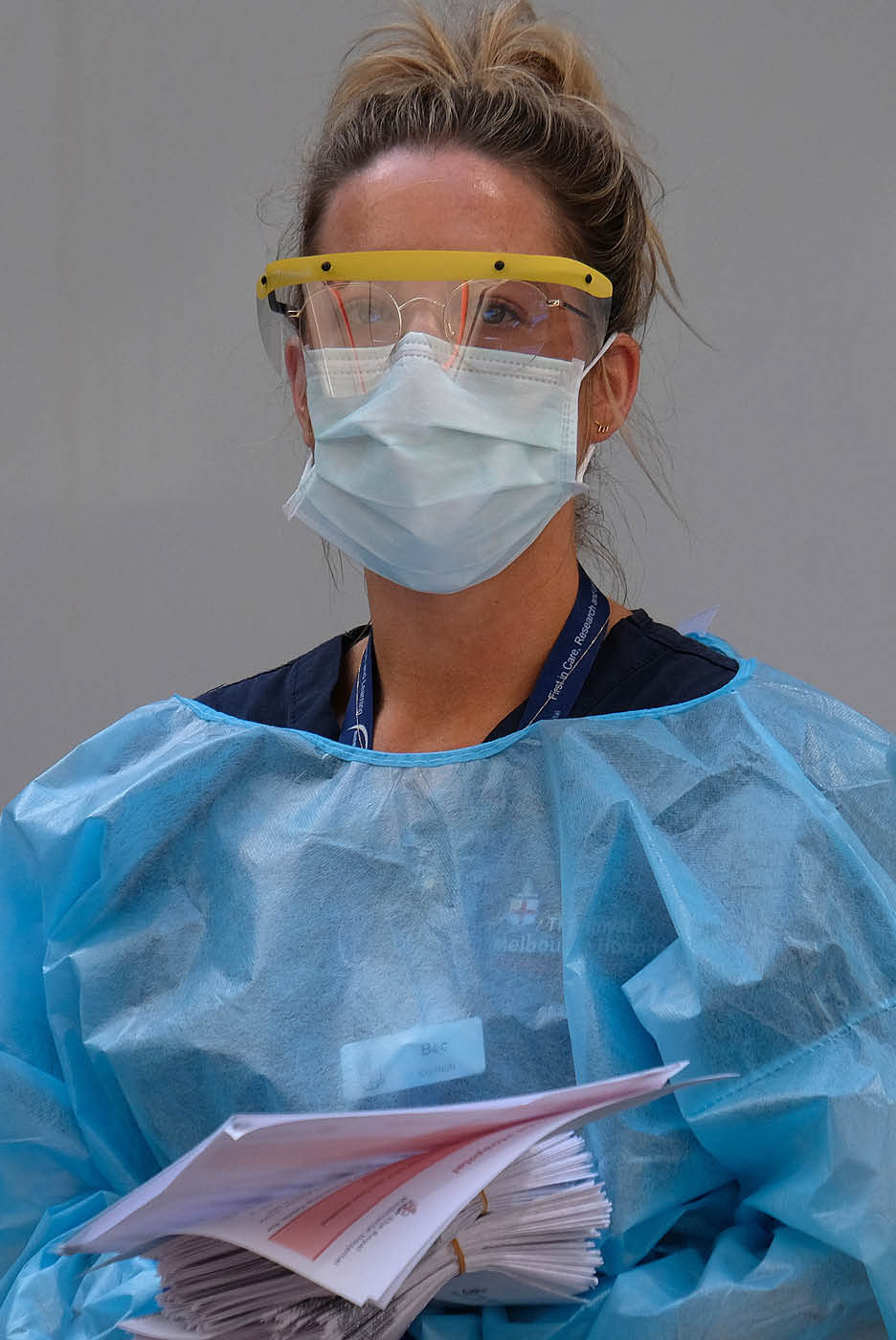
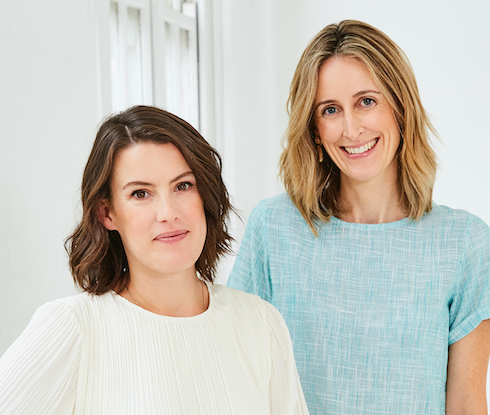




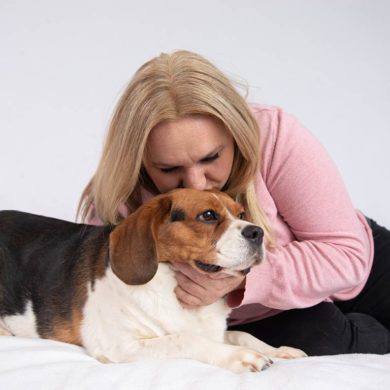



No Comments